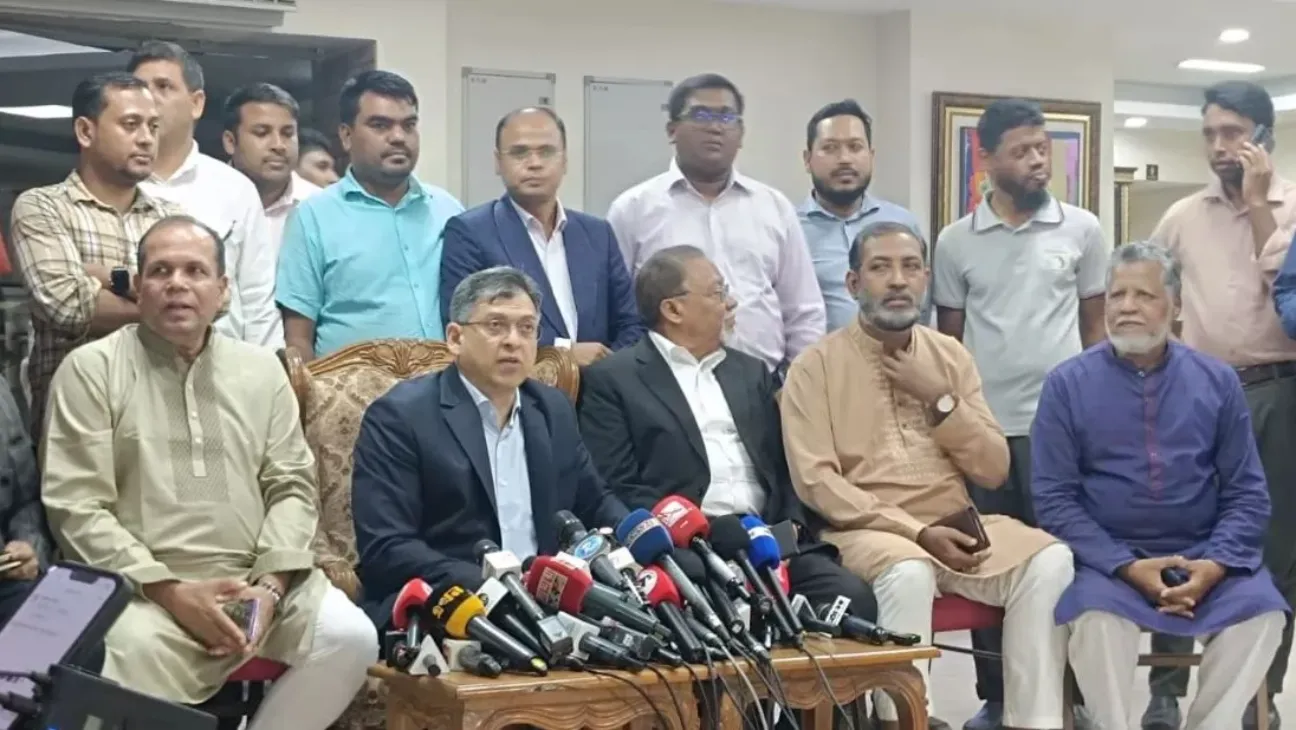BNP Standing Committee member Salahuddin Ahmed said Wednesday that the “July National Charter 2025” represents a binding social contract between the people of Bangladesh and its political parties.
Speaking to reporters during a break at the 22nd session of the National Consensus Commission (NCC) dialogues in Dhaka, he said no party would dare to defy the charter because it has emerged through a transparent and widely watched national dialogue.
“Would any political party dare to break this? Would any party take that risk?” Salahuddin asked. “I do not think there could be a bigger consensus or agreement than this. It is a contract between the nation, the people, the political parties, and all stakeholders. And I firmly believe the only place to implement this is the National Parliament.”
The charter comes after months of discussions involving political parties, reform commissions, and the NCC. Salahuddin described the process as an “open court trial,” pointing out that the live-broadcasted sessions let the public see exactly who supported which proposals.
“Some are saying this should be a legal document,” he said, responding to calls from Bangladesh Jamaat-e-Islam and the National Citizens Party for immediate legal enforcement. “But when a charter is prepared with signatures from the chief adviser, reform commissions, the NCC, and political parties, and it is published online and in newspapers, can any party dare to break it? I do not think so.”
The BNP leader said the document reflects the country’s collective mood following the July-August student-led uprising. He argued that political parties cannot ignore the commitments made during that period of mass mobilization.
BNP, he added, is fully aligned with the NCC’s plan for implementation. One section of the charter requires all commitments to be carried out within two years of a new parliament forming. “We are 100% in agreement with that sentiment and proposal,” Salahuddin said.
He also noted that some reforms have already been introduced through ordinances and ministerial decisions, even before the charter’s formal signing.
Addressing criticism that BNP resists reform, Salahuddin pointed to the party’s participation in the consensus process. “Out of 826 total proposals from the six key reform commissions, we disagreed with only 51,” he said. “After such a massive process of consensus-building, how can anyone say BNP is not committed to reforms?”
The National Consensus Commission is expected to continue discussions on how the charter will move toward parliamentary implementation in the coming months.









